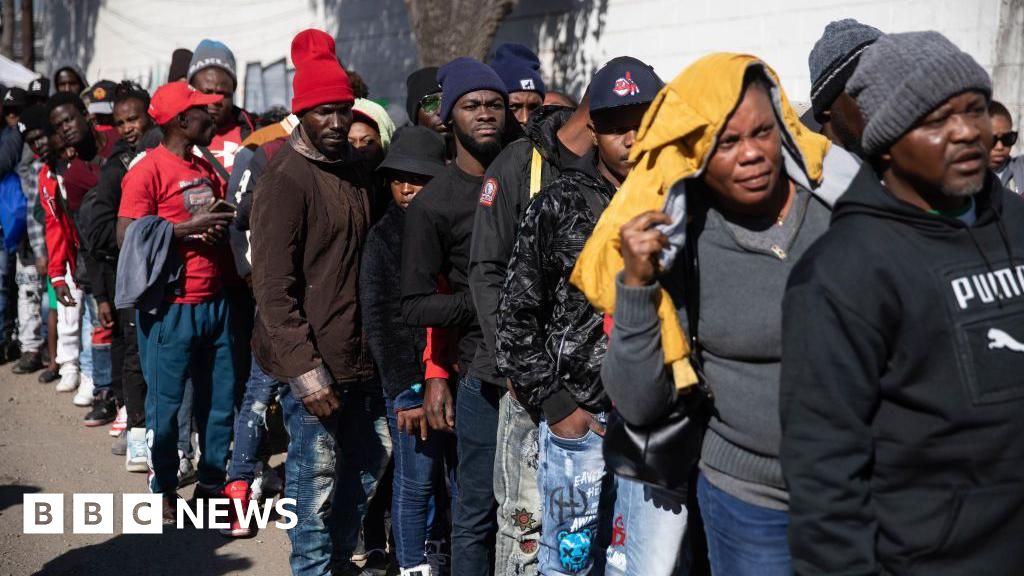India’s Got Latent: Ranveer Allahbadia’s ‘dirty’ comments spark massive row in India
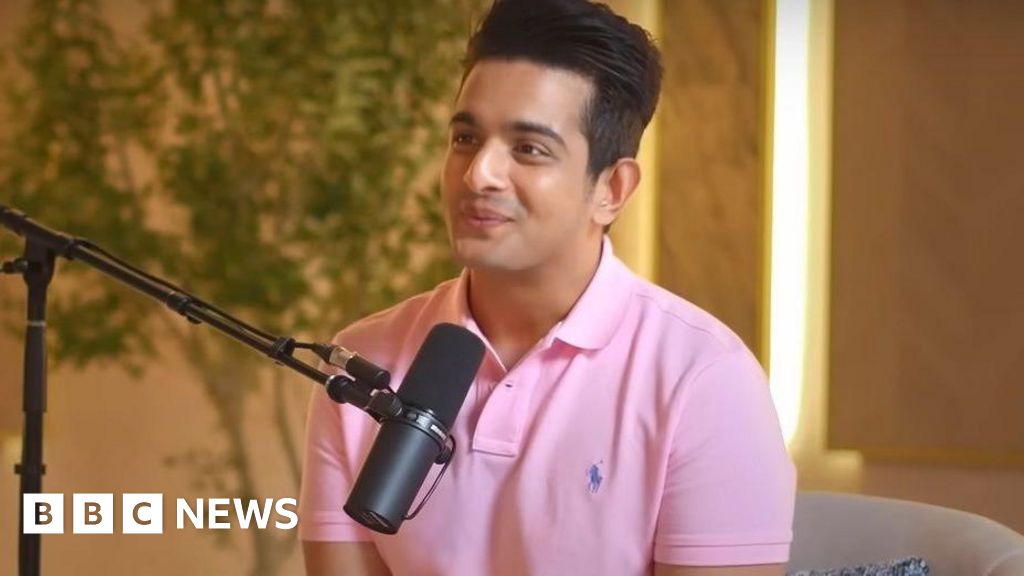
BBC News, Mumbai
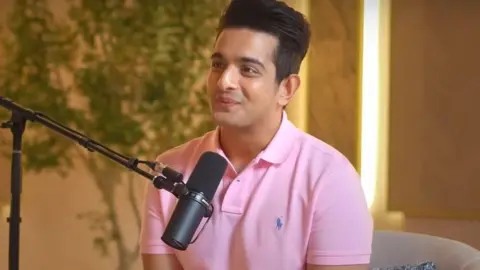 BeerBiceps/YouTube
BeerBiceps/YouTube“Dirty.” “Perverted mind.” “Disgusting.”
These were the words India’s Supreme Court used on Tuesday while granting interim protection from arrest to a popular YouTuber who has been in the eye of a storm in the country over the past week.
The furore began after Ranveer Allahbadia – whose YouTube channel BeerBiceps has eight million followers – asked a contestant the question: “Would you rather watch your parents have sex every day for the rest of your life or join in once and stop it forever?”
The comments, made on the show India’s Got Latent on 9 February, sparked massive outrage, police cases and even death threats. YouTube quickly removed the episode, but that didn’t stall the tide of anger directed at Allahbadia and the show.
In fact, the amount of attention the incident has received is mind-boggling: it has made national headlines, been covered on primetime TV and some of India’s most prominent news sites have even run live pages.
Not surprising, considering the star status of Allahbadia. He has interviewed federal ministers, top Bollywood celebrities, cricketers and Hollywood actors. And last year, Prime Minister Narendra Modi handed him a “National Creators Awards” trophy.
Since the controversy erupted, Allahbadia and the show’s creator, Samay Raina, have apologised for the comments and Raina has taken down all previous episodes of the show. The Supreme Court in its recent order has even banned Allahbadia from posting content on social media.
But the incident continues to make news.
“It feels like the state is trying to make an example out of Allahbadia,” says Apar Gupta, founder of the Internet Freedom Foundation. Saket Gokhale, an opposition lawmaker, also condemned the targeting of Allahbadia and the show.
“Crass content can be criticised if it offends you. However, you cannot have the state persecute and lock up people for offending your ‘moral sentiments’,” he wrote in a post on X.
Popular comedian Vir Das also weighed in on the controversy and criticised news channels for their one-dimensional coverage of the incident and for taking a disparaging view of all digital content.
Allahbadia’s remarks and the subsequent backlash have triggered debates around free speech and India’s obscenity laws; it has also sparked conversations around the thirst for viral content and the consequences its makers face when their content crosses lines upheld by the very people who watch it.
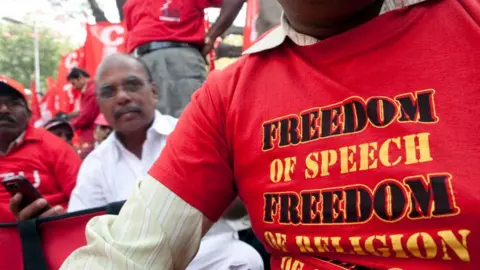 Getty Images
Getty ImagesRaina’s show, which debuted in June, has been popular from the start, with each episode being viewed tens of millions of times on YouTube. And it hasn’t shied away from kickstarting controversies either.
The show has platformed some bizarre performances and judges and contestants have been seen making crass and crude comments more than a few times. Critics have accused the show of spewing misogynistic views and for body-shaming guests.
A popular fashion influencer once walked out of the show after a male contestant compared her to a former adult film actress while another asked her about her “body count” (a slang term for the number of sexual partners a person has had).
But that seems to have been the appeal of the show too.
Fans of the show have hailed it for championing “raw talent and unfiltered jokes”. Some have said that they liked the roasts – a form of insult comedy – which was popular on the show.
Experts have underscored how, with the entertainment landscape exploding, digital content creators often feel compelled to push the envelope – even if it means resorting to the risqué and lewd – just to gain views and virality.
It’s safe to say the show pushed the envelope and the buttons of many. But then, it backfired.
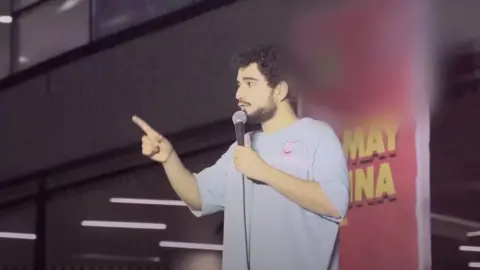 Samay Raina/YouTube
Samay Raina/YouTube“A lot of comedy, especially of a certain masculine kind, is cruel and punches down on people. It has a violent undercurrent. So if you contribute to that culture, it’s not a shock if it comes back to bite you some day,” filmmaker Paromita Vohra says.
She adds that successful comedy calls for a fine-tuned awareness of the audience it is being performed for and what boundaries it can push.
Interestingly, Allahbadia’s question, which sparked the furore, was almost identical to the question asked by the host of an Australian comedy show called OG Crew’s Truth or Drink. While the question didn’t spark outrage in Australia, it has in India.
“The internet has made it possible for content to reach spaces and people it was not organically playing to. Unthinkingly appropriating content can have unexpected consequences,” she says.
But she also says that there’s a need to guard against making such issues a question of morality.
“When such controversies erupt, there is always the risk of morality being weaponised to punish people who have gone against what’s accepted by society,” she says and adds that morality is increasingly being beaten into the legal framework of the country, which can have a divisive effect.
Some critics have also accused the authorities of using the controversy as a smoke screen to divert attention from other pressing problems – like unemployment and pollution. Some fear that it will be used by the federal government as a reason to justify further regulating content creation.
After the controversy, a report by NDTV news channel stated that a parliamentary panel was considering making laws around digital content stricter. The Supreme Court too has pushed for more regulations around online content.
Mr Gupta says the state already has a “tremendous amount of power” to prosecute people accused of flouting various data and content laws and that while the state exercises its powers without restraint, content creators don’t have as many legal safeguards to protect them.
“Instead of tighter laws, we need more reform; existing legal standards need to be more tolerant of free expression,” he says.
“Other systems, like education and digital learning should be strengthened so that young people know to get their education from the classroom, and turn to the internet only for entertainment.”
Checkout latest world news below links :
World News || Latest News || U.S. News
Source link


